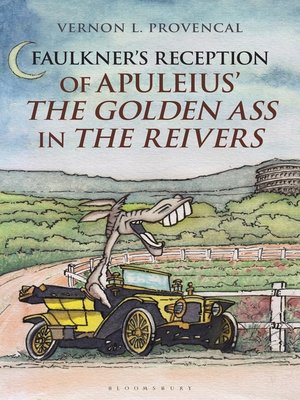Faulkner's Reception of Apuleius' the Golden Ass in the Reivers
ebook ∣ Bloomsbury Studies in Classical Reception
By Vernon L. Provencal

Sign up to save your library
With an OverDrive account, you can save your favorite libraries for at-a-glance information about availability. Find out more about OverDrive accounts.
Find this title in Libby, the library reading app by OverDrive.



Search for a digital library with this title
Title found at these libraries:
| Library Name | Distance |
|---|---|
| Loading... |
Faulkner's final novel, The Reivers, has been gently dismissed by scholars and critics as no more than its subtitle claims, A Reminiscence. Although the new millennium has seen a new appreciation for Faulkner's later novels, The Reivers is still perceived as a slightly fictionalized comic memoir romanticizing the early life of the author in the pre-civil rights American South. This volume takes this dismissal of The Reivers to task for failing to appreciate its employment of the Apuleian narrative of life-altering metamorphosis to offer, as his literary farewell, hope for humanity's self-redemption.
Vernon L. Provencal studies the reception of The Golden Ass in The Reivers as comic novels of moral katabasis (wilful descent into the lawless underworld) and providential anabasis (societal and spiritual redemption). As the independent basis of the reception study, The Reivers receives its first ever detailed reading, while The Golden Ass is read anew from the teleological perspective offered by the (undervalued) prophecy that in the end the comic hero would become the book itself.
Vernon L. Provencal studies the reception of The Golden Ass in The Reivers as comic novels of moral katabasis (wilful descent into the lawless underworld) and providential anabasis (societal and spiritual redemption). As the independent basis of the reception study, The Reivers receives its first ever detailed reading, while The Golden Ass is read anew from the teleological perspective offered by the (undervalued) prophecy that in the end the comic hero would become the book itself.







